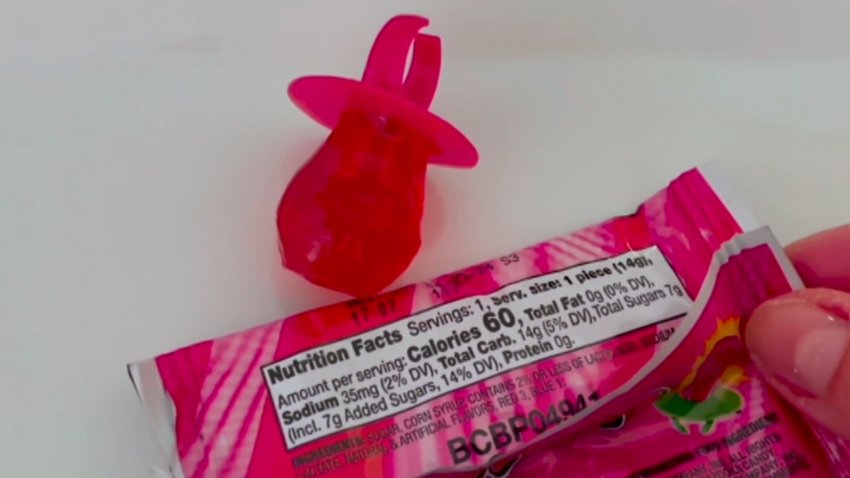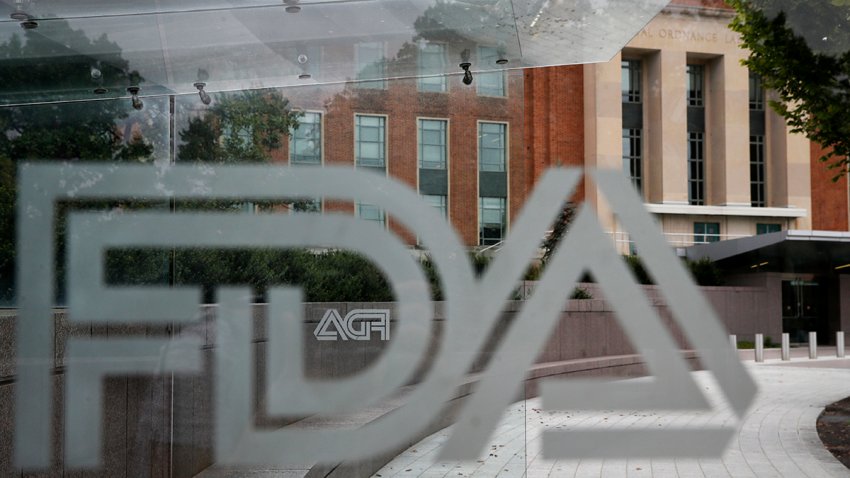-

What is red food dye and what products use it?
Red food dye is commonly used in beverages, snacks and candies, but it’s come under scrutiny for possible links to cancer and behavioral problems in children.
-

FDA may finally ban artificial red dye from beverages, candy and other foods
A decision on Red No. 3, the synthetic coloring made from petroleum, could come in the next few weeks.
-

Carrot recall: FDA lists more products, grocery stores linked to E. coli outbreak
A recent E. coli outbreak linked to organic, bagged carrots that has sickened nearly 40 people across 18 states has led other popular brands to recall vegetables because of possible contamination, including additional products sold at Whole Foods.
-

New FDA rules for TV drug ads: Simpler language and no distractions
New rules require drugmakers to be clearer about explaining the risks and side effects of prescription drugs.
-

What to know about Robert F. Kennedy Jr., Trump's pick for health secretary
Robert F. Kennedy Jr. has promoted claims about vaccines that contradict the overwhelming consensus of scientists.
-

FDA proposes ending use of decongestant found in many cold, allergy medicines
The FDA said the proposed order is not final yet, which means companies can still market over-the-counter drugs containing oral phenylephrine for now.
-

Why do we see prescription drug shortages?
Forty years after the Hatch-Waxman Act, which provided widespread access to affordable generic versions of medications, the market is struggling with persistent shortages brought about partly by low prices.
-

Nearly 2,000 drug plants are overdue for FDA checks after COVID delays, AP finds
U.S. health inspectors are still struggling to address a massive backlog of pharmaceutical plants that went uninspected during disruptions caused by COVID-19. That’s according to an analysis of government data by the Associated Press. The data shows roughly 2,000 drug manufacturing sites around the world have not had a Food and Drug Administration inspection for quality since before the pandemic....
-

Teen vaping hits 10-year low in US, new data show
Youth vaping levels fell to the lowest in a decade this year, according to a new report from the Centers for Disease Control and Prevention and the Food and Drug Administration.
-

Doctors soon required to tell mammogram patients about breast density
Soon, doctors must tell their mammogram patients if they have dense breast tissue, a factor that can make it harder to detect breast cancer and put them at greater risk for cancer. The Food and Drug Administration released new standards in March of 2023 in an effort to help more women detect breast cancer sooner. The FDA gave providers until…
-

What to know about a new mammogram regulation
A D.C. woman who is a two-time breast cancer survivor says for a long time she didn’t know she had dense breast tissue. A new rule aims to provide more people with the knowledge about their breast density. News4’s Aimee Cho reports.
-

FDA approves new treatment for people with hemophilia B
There’s a new hope for people living with the rare blood disorder hemophilia B. The FDA recently approved a new gene therapy treatment for those who suffer from the debilitating condition. Dave Robinson, a 61-year-old IT consultant from Falls Church, Virginia, was born with the rare genetic blood disorder caused by an insufficient level of a protein known as...
-

FDA approves new treatment for people with hemophilia B
A man from Falls Church, Virginia who was born with Hemophilia B shares his reaction towards a clinical trial for a single infusion that changed the course of his life and could help others like him. News4’s Eun Yang has the story.
-

FDA warns against smelling salts claiming to boost energy
The FDA says the unapproved drugs can have some dangerous side effects.
-

FDA rejects psychedelic MDMA as treatment for PTSD, calling for additional study
Federal health officials have declined to approve the psychedelic drug MDMA as a therapy for PTSD. Drugmaker Lykos Therapeutics announced the FDA’s decision on Friday.
-

FDA approves first nasal spray to treat dangerous allergic reactions
U.S. health officials have approved the first nasal spray to treat severe allergic reactions, offering an alternative to injectable products like EpiPen.
-

FDA once again pushes back proposal to ban cancer-linked formaldehyde in hair relaxers
The Food and Drug Administration’s proposal to ban formaldehyde in hair care products has been pushed back once again, and the timeline for its release remains undetermined.
-

FDA OKs first menthol e-cigarettes, citing potential to help adult smokers
Friday’s action is the government’s strongest indication yet that switching to flavored vaping can reduce the harms traditional tobacco smoking.
-

The FDA reverses its ban on Juul e-cigarettes
Juul’s nicotine products have been allowed to stay in stores pending review of its application to sell them.
-

Panel rejects psychedelic drug MDMA as a PTSD treatment in possible setback for advocates
A first-of-a-kind proposal to begin using the mind-altering drug MDMA as a treatment for PTSD was roundly criticized Tuesday — a potentially major setback to psychedelic advocates who hope to win a landmark federal approval and bring the banned drugs into the medical mainstream.

